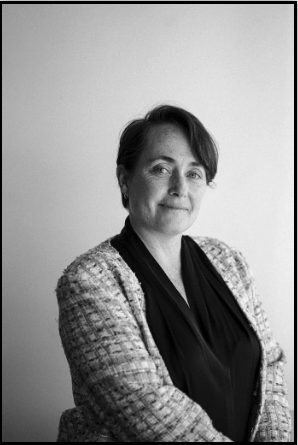Stimulants are a broad class of drugs that cause an increase in some bodily functions, including a boost in energy. Stimulants may often cause a person to seem excited or jittery. In the broadest terms, stimulants and depressants are the two primary classes of drugs, sometimes referred to as “uppers” and “downers.”
Stimulants are a class of drugs that can cause a person to experience a boost in energy or alertness. Stimulants often have the opposite effect of depressant drugs, such as alcohol or opioids. Common legal substances such as caffeine and nicotine are considered to be stimulant drugs.
In small doses, stimulants cause a boost in energy and help people focus or be more alert. Stimulants also can make people feel more confident and boost self-esteem. In larger doses, the alertness brought on by stimulants can cause adverse effects, such as headaches, anxiety, panic attacks, or irritability.
Prescription stimulant drugs are most often used to treat conditions such as ADHD. Examples of prescription stimulant drugs include Adderall, Ritalin, and Concerta. Other stimulants are sold illegally on the street, such as cocaine or meth.
Cocaine is a drug often sold in powder form made from the coca leaves native to South America. Cocaine is most commonly snorted up through the nose or rubbed around a person’s gums. Some people may dissolve the powder in water and then inject the substance into their bloodstream.
Cocaine works primarily on the brain by drastically altering the amount of dopamine in the brain. In normal circumstances, dopamine is usually released and then absorbed back into the cell. When a person uses cocaine, the absorption process becomes blocked, so dopamine is continuously released but never absorbed back into the cells. This drastically increases the amount of dopamine found in the brain, leading to a boost in energy and good feelings.
Crack is a different substance than cocaine, but one that is directly related. Crack is a human-made chemical compound that combines cocaine, water, and another substance, usually baking soda. This mixture is boiled until it becomes a solid, crystalline substance. The solid sheet is then broken into pieces, or “rocks.” Unlike cocaine, crack is almost always smoked. The name crack comes from the crackling noise the “rock” makes when heated during the smoking process.
Because crack is created using cheap additives, such as water and baking soda, it is sold for a fraction of the cost of cocaine. While cocaine’s price usually makes it a drug for the wealthy, crack is one of the cheapest street drugs available. Crack is also far more potent than regular cocaine due to the chemical reaction that occurs when baking soda is added to the cocaine.
Amphetamines are a class of stimulant drugs used to treat a variety of conditions. Most commonly, amphetamines are used today to treat disorders such as ADHD and narcolepsy. Although ADHD medication is likely how most people will see amphetamines prescribed, they have various uses, and doctors may prescribe them to treat other conditions.
Amphetamines are commonly abused by students and teenagers because of their effects. As a stimulant drug, amphetamines can cause the user to have a drastic increase in energy and focus. These effects can help people who have ADHD and struggle with focusing on anything for an extended period. However, these effects often lead to the drugs being commonly abused, as adolescents use them to stay up for extended hours to study or do homework.
Methamphetamine is a substance commonly referred to as meth or crystal meth on the stress. It is an addictive stimulant drug with a variety of dangerous effects. Meth provides an intense euphoric feeling almost immediately after being smoked or injected. However, this effect is generally short-lived, and then users experience a period of “crashing.” The crash of meth can lead to feelings of depression, anxiety, and impaired cognitive function.
Prescription drugs can be stimulants or depressants, depending on the specific medication. The most common type of prescription stimulant is amphetamines. Amphetamines are stimulant drugs that can be prescribed under a variety of names. The most common legal amphetamines in the United States are sold under brand names such as Adderall, Ritalin, Concerta, and Dexedrine. All of those drug’s primary use is to treat ADHD, often in children or young adults. They may also be used at times to treat sleeping disorders such as narcolepsy.
Effects of stimulants may vary based on factors such as the size of the person taking them, the amount taken, the specific drug being taken, and whether other substances have been ingested. Possible side effects of stimulant use include:
Substance abuse treatment should always be catered to the needs of the individual. Each person in recovery may respond differently to various types of treatment, so no one treatment program will work for everyone.
Psychotherapy options, such as cognitive-behavioral therapy and dialectical behavior therapy, can be beneficial in the treatment of substance abuse. Group meetings, such as SMART Recovery or Narcotics Anonymous, may be helpful tools for people who find group support helpful.
If you or a loved one may be suffering from substance abuse disorder, the first step is to seek a medical professional’s help. Getting help with addiction treatment is a vital step in the recovery process. Symptoms associated with withdrawal are often challenging and can be dangerous to face alone. Treatment facilities can help guide you through the initial stages of the recovery process safely and effectively.
At AM Health Care, we believe in finding the recovery method that will work best for you. Every person has different needs when it comes to addiction treatment, and not one thing will work for all people. We can find the facility and program that best fits your needs to receive the best chance at recovery possible. Please reach out to us at 818-383-1297 to learn more about substance abuse treatment options.
Our facilities that offer Stimulant Addiction Treatment:

